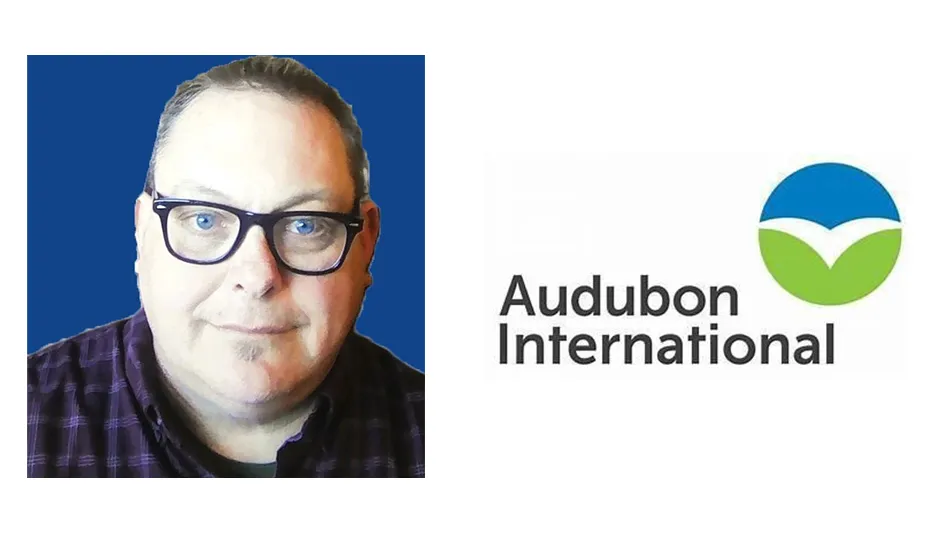
Courtesy of Scott Johnson, The Warrior Alliance
Jeremy Tindell was 25 years old and five years into his military career when he jumped out of an airplane over South Africa, tangled with another soldier and plunged toward the ground. Tindell survived and continued to serve in the 75th Ranger Regiment, an elite force in the U.S. Army Special Operations Command, but he had fractured his lower back. He slid from a position with the infantry over to the staff. He worked behind a desk for most of the next 15 years.
“It kind of slowed my promotion and progression,” Tindell says. “They kept me within the unit and helped me to rehabilitate the best that I could.”
Tindell eventually transitioned to become a career counselor within the unit. He retired in 2018, Sergeant First Class, with two full decades of service. He served his last three years at Fort Gordon — the current home of the Army Signal Corps, the Army Cyber Corps and the Cyber Center of Excellence — in Augusta, Georgia.
Augusta, of course, is a fine place for a young man who loves golf and Tindell dived into the game even before he retired. Some days, he can play 18 holes. Other days, because of lingering injuries related to that tangled jump, he might be able play three or four. Before this year, he had worked security each of the last five Masters at Augusta National Golf Club, sitting in what he calls “the catbird seat” near the practice green and the first tee.
“I meet probably tens of thousands of people,” he says. “I love meeting people. I love conversations, just being personable.”
And that personability, that love of the game, that military drive for perfection to help his fellow servicemen and women, all blended together, helped make Tindell the perfect candidate for the position he holds in retirement: veteran outreach coordinator for The Warrior Alliance’s Operation Double Eagle.
Launched in 2018, The Warrior Alliance is one of about 43,000 veteran service nonprofit organizations — its stated mission is to help veterans, or Warriors, and their families achieve a fulfilling civilian life by promoting collaboration between the organizations that can support them during the transition from military service.
Operation Double Eagle is just part of the organization but could become an incredibly valuable resource for the golf course maintenance industry: If the program develops like Tindell and Scott Johnson, the president and executive director of The Warrior Alliance, think it will produce a cohort of as many as 15 injured veterans, trained in every aspect of the industry by a veteran college turfgrass program instructor, every nine weeks.
Conducted at Augusta Technical College and led by Scott Smith, the 14 credit hour program dives into turfgrass and golf course management, irrigation and pipe installation, pest management and pesticide application, water management, horticulture science, equipment safety, planting and legal — along with daily lab visits to the Double Eagle Performance Center and regular trips to Augusta Municipal Golf Club, a David Ogilvie design affectionately referred to as The Patch. Among the many projects for Operation Double Eagle Warriors: a renovation to bring The Patch up to code with current Americans with Disabilities Act requirements.
Completion will merit a Golf Turf and Landscape Specialist certificate. They will be prepared not for jobs but for careers.
“We’re lining up the employers on the backend,” says Johnson, whose three decades in corporate executive offices helped prepare him to build the organization. “So it’s not like, ‘Finish this work, guys and gals, and then good luck to you. Here’s how you write your resume.’ We’re bringing the employers to them.” Landscapes Unlimited, Wadsworth Golf Construction and East Lake Golf Club have all already expressed interest in cohort graduates.
“My long-term vision is not that we’re going to be able to build 500 people through this program every year,” Johnson says. “That’s not my goal. It’s to drive a 98 percent employment rate for everybody that comes through the program and we’ve become the pool of resources for the industry. … We can become a kind of constant workforce development program and even tailor some things for certain parts of the industry, like irrigation.”
For now, Operation Double Eagle will be limited geographically to Augusta, though Johnson and the rest of the team think it could scale up with more locations, more cohorts, more Warriors. “At least for the next two to three years, we plan to just offer this training here, but we’re attracting people from around the country and the job opportunities are nationwide.” After that, “how do you scale it?” Johnson asks. “We’re here to help veterans.”
“Our biggest challenge is getting the word out in the industry and finding organizations that are not just veteran-friendly but are committed.”
A few big names might help that challenge become less of a hurdle. Bernie Marcus, the co-founder and longtime CEO of The Home Depot, helped Johnson build The Warrior Alliance from the ground up. Veteran Augusta University director of athletics Clint Bryant is a member of the board. The biggest name for industry professionals, though, is Marsh Benson, the senior director of golf course and grounds at Augusta National from 1990 until his retirement in 2015.
“There are a lot of programs trying to provide veterans job opportunities,” says Benson, who serves as a strategic advisor for Johnson. “But oftentimes those job duties that come their way, I don’t think respect the leadership skills that they’ve learned in the military.” The emphasis on careers rather than jobs attracted Benson, who never served in the military but whose family served in various branches back to the Civil War. Benson’s father, William Frank Benson, served in the 8th Air Force, and his uncle, Herbert R. Edmondson, was an Army Colonel in the Pacific.
Benson has no interest in “sitting on some board somewhere.” He wants to help make a difference. “Coming out of this program will definitely provide a head start,” he says, “and I really feel that in our industry, there truly are lots of opportunities or positions that can be careers. And I think there are facets of the business that also allow for somebody who gets experience like this to be an entrepreneur and start their own company — in irrigation, or software management, or heavy equipment operation, or you take care of an estate, you have a lawn care company.”
No matter where cohort graduates wind up — the pilot program of five is still finding their professional footing, and the first full cohort is currently in its fifth of nine weeks of instruction and training — Tindell will keep in touch.
Tindell loves conversation, remember, and part of his duties as veteran outreach coordinator include checking in on all graduates for at least the next two years. He was tasked with the same responsibility during his years as an Army career counselor. He loves it. Long after he returns to his familiar spot at Augusta National, working security near the first tee, Tindell will keep calling, keep checking in, keep ensuring the program is working as designed.
One pilot program graduate called him the other week, elated about landing a position, still giddy about the training. He has been helping another graduate who had been homeless relocate to Augusta and find permanent housing.
“We’re bringing a new hybrid of employees to the golf course industry when it comes to maintenance and management,” Tindell says. “And I’m dedicated to these guys and gals.”
Matt LaWell is Golf Course Industry’s managing editor.





